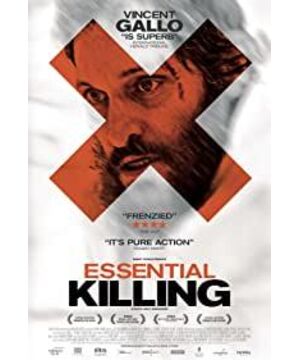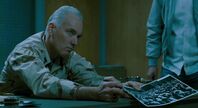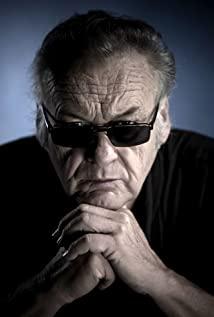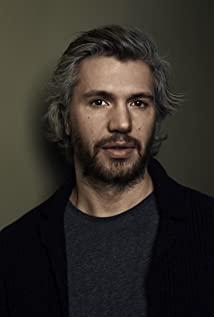Under what circumstances would you kill someone?
I once asked a very good friend such a question. This friend has a high degree of education and social status. I thought it would be a difficult question for him to answer and need to think for a long time, but the result was unexpected. Not only did he answer without hesitation, he gave me a long list: someone threatened my life, threatened the life of someone I love, someone wants to take my freedom, someone I love freedom, someone is going to rob me of all my wealth, my fame, my status….
Although I am a little surprised by the length of the list, I can understand the thinking and logic behind him. In his mind, some things are more important than life. Once you lose these things, there is not much meaning in living, and when living is not No matter how meaningful it is, killing is not something to be feared and avoided so much. It's just that most animals kill other creatures only to survive and to fill their stomachs. Why do people have so many things more important than life?
■"Necessary Killing" is the work of the well-known Polish director Jez Skolimovsky, which won the Grand Jury Prize and the Best Actor Award at the 2010 Venice Film Festival. Although the film was crowned at the International Film Festival, it was criticized by audiences and many film critics as worthless, thinking that the film was less than 90 minutes long, dull and lacking in focus. The Hollywood Reporter even said the film would have been a huge disaster if it hadn't been for the leading man to hold up the entire movie.
Despite the flood of negative reviews, I myself quite like this film, and the reason I like it is the reason Americans hate this film so much, it tramples on the lives and dignity of American soldiers. I don't say this because I have any hatred for American soldiers, it's just that in all movies, American soldiers always appear as heroes, even if they die unfortunately, it is for justice and courage. As for other characters, they must be responsible for bad guys or The role of the weak. But in this film, American soldiers are bad and weak, sad and ridiculous clowns who are easily killed by the protagonist like ants. Personally, this kind of anti-mainstream presentation represents the real courage of a film artist, and the persistent foolishness of an egg hitting a hard wall.
The plot of "Necessary Killing" is very simple. An Afghan terrorist was arrested for killing three hilarious U.S. troops and was immediately sent to a secret concentration camp somewhere in Eastern Europe to be tortured to extract a confession. On the way to the transfer, he escaped due to a car accident, and then he started to escape and survive in the snow-covered forest.
At the beginning of the escape, the terrorist realized that he could not escape from the ice and snow, so he turned back and tried to surrender to the American soldiers. However, the two American soldiers who stayed at the scene of the accident were indulged in loud rock music. Ming also happily called his family on the phone, not even realizing that the terrorist walked behind him with his hands up. Seeing the pistol stuck in the waist of the US military, the terrorists reflexively drew the gun to kill the two US troops and drove away their car in exchange for a chance of survival. After all, when he was in the concentration camp, the U.S. military treated him extremely cruelly.
However, it was too conspicuous to drive the car, and the terrorist soon abandoned the car and fled into the forest. At this point, he knew in his heart that once he was captured by the US military, he would definitely be a dead end, and he could only escape at any cost. In order to survive, he was on the verge of death by killing another American soldier who nearly caught up to him, and a seemingly dangerous lumberjack armed with a chainsaw. To fend off hunger, he digs ants, chews on tree bark, robs and eats live fish caught by others, and even threatens a mother with a gun to suck her breast milk. Although the situation was so critical and he was hungry, he never took the initiative to harm animals, and even rescued a dog trapped in a trap, and deliberately avoided a large herd of deer.
Cold, hungry and wounded, the terrorist walked to a mountain house and passed out the window of the house. A deaf and mute woman lived in the house. She was shocked when she saw the figure of the terrorist outside the window. But as soon as he found out that this was a man on the verge of death, he dragged him into the house without hesitation to take care of it. She cleaned his wounds, served hot soup, and resisted the two US troops who came to check on him. The two U.S. troops thought that the woman was deaf and dumb, and they were too lazy to deal with her, so they left after a quick glance. The next morning, the terrorist left the woman's house on a white horse and proceeded down the road. Sitting on the back of the horse, he began to bleed from his nose and mouth because of the serious injury. In the end, he saw the horse walking alone on the white snow, with bright red blood splattered on the horse's neck.
■Director Jez Skolimovsky's previous work is "Four Nights with Anna". Although the themes and techniques of these two works are different, they have very little dialogue. Blank lets the audience figure it out for themselves, and the protagonists of the two films are also "natural" bad guys. However, the real story lies in the deliberately left blank and "taken for granted" parts of the film.
The biggest feature of this film is that the protagonist who plays the terrorist has no dialogue, and the director has never explained the background of the protagonist from beginning to end. We only know that he killed in the canyons of Afghanistan because he was afraid of armed US troops, but he did not. Know why he appeared in that canyon. We take him for granted as a terrorist only because he appeared in the uninhabited canyons of Afghanistan and killed American soldiers with a weapon of mass destruction. But in fact, this weapon was picked up from a dead person, and this so-called "mass killing" weapon is enough to kill a person.
The film did not explain why the terrorist was sent to Eastern Europe after he was arrested, and which country in Eastern Europe was it? After all, the only character in the film who had a connection with the protagonist was a deaf and mute woman who never spoke. . However, when reporters and the audience asked about it later, they learned from the director that the U.S. military had secretly established several Guantanamo-like concentration camps around the world, and other countries refused to admit it except for the official recognition by the Slovak government. Although the Polish government also killed and refused to admit it, it is said that Poland also has one, and the country is currently investigating the matter.
In every interview with reporters, the director has repeatedly emphasized that the film has nothing to do with politics. His original words are as follows: "The United States has the most powerful military in the world, but they end up in trouble every time they act: Vietnam, Iraq, Afghanistan... There must be something wrong with the organization within the U.S. military. But I reiterate that my film has nothing to do with politics, it only tells about the spirit of human struggle." Although the director has repeatedly stated this, it seems that there is no silver here. 2. After all, after watching the movie, what impressed the audience the most was not how the protagonist struggled to survive and brutally killed the U.S. military during the escape process, but the indiscreet attitude of the U.S. military from beginning to end, as well as the inhumane abuse and mistreatment carried out in the concentration camps. torture.
■I think the innuendo and satire of the U.S. military in the film is very obvious. In addition, the real issue is "the nature of killing", which is exactly the name of the film. In "Necessary Killing", three parties are involved in the killing, one is the protagonist who is a terrorist, the other is the US military who sent troops to Afghanistan to hunt down the protagonist, and the other is the "God" of Allah in the mouth of Muslims. In the movie, when the protagonist is in pain, a hazy picture of his wife and daughter emerges. Outside the picture, a song is played that awakens believers to sacrifice their lives and kill enemies for Allah.
The reason why the protagonist kills in the film is to survive. Even in starvation, he is reluctant to harm animals easily, but he does not hesitate to fight and kill people with weapons that threaten his life. . This kind of killing in order to protect one's own life is an animal instinct and a behavior that everyone can understand. But why did the U.S. military kill? Since they did not face the crisis of survival, why did they start a war to kill? What is it that allows them to take their lives lightly? Many people may answer for freedom and peace, but is this true? does it worth? In any case, this is a question that Americans themselves can answer.
God created all things, and God loves the world. Yet while God loves, he kills, and while he preaches good, he does evil. Why is this? Allah's believers stick to his way, to destroy those who are evil, unjust, and to give their lives for Allah, and whether the sacrifice is successful or not, Allah will reward him in heaven. But why are those who do not believe in Islam and those who do not abide by the teachings of Islam as evil people, who are unjust and unrighteous, so they will die with guilt? What is the reward of Allah, and is it worth killing at any cost? In any case, this is a question that can only be answered by a person of Islamic fundamentalism.
What we can be sure of is that Americans cannot understand the nature of Islamist killings, yet they firmly believe in the legitimacy of their own killings. And Muslims also cannot understand the nature of American killings, but they also firmly believe in the legitimacy of their own killings. Both sides are equally stubborn and equally ignorant. So the Afghan protagonist in the film becomes an innocent victim, and it is the meaning conveyed by this arduous and hopeless escape in the film: all the killings of human beings except for survival are due to stubbornness and ignorance.
PS The deaf woman in the film is played by director Roman Polanski's wife. Based on Polanski's grievance with the United States, his wife will play the role who cannot communicate with the Americans and is looked down upon by the Americans. It doesn't fit.
View more about Essential Killing reviews











